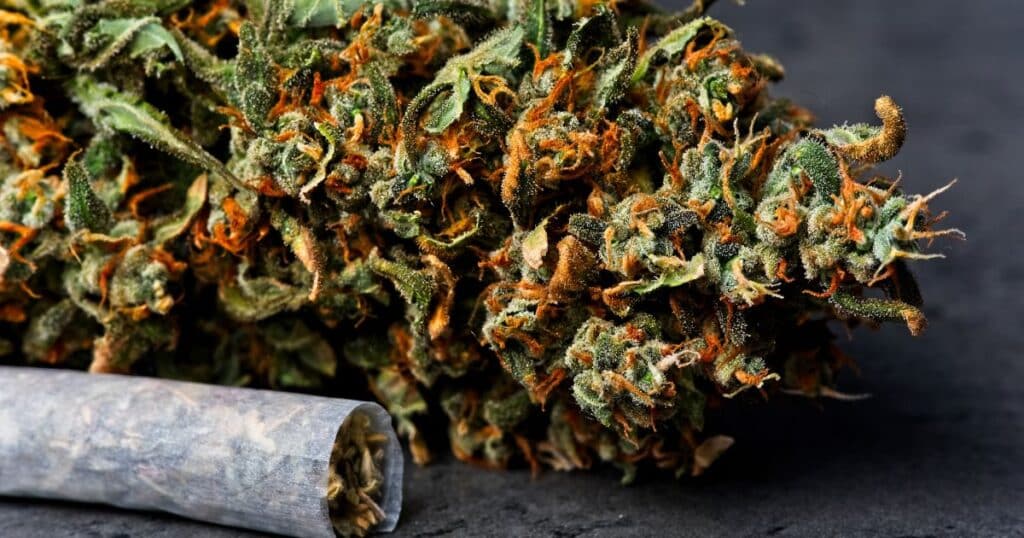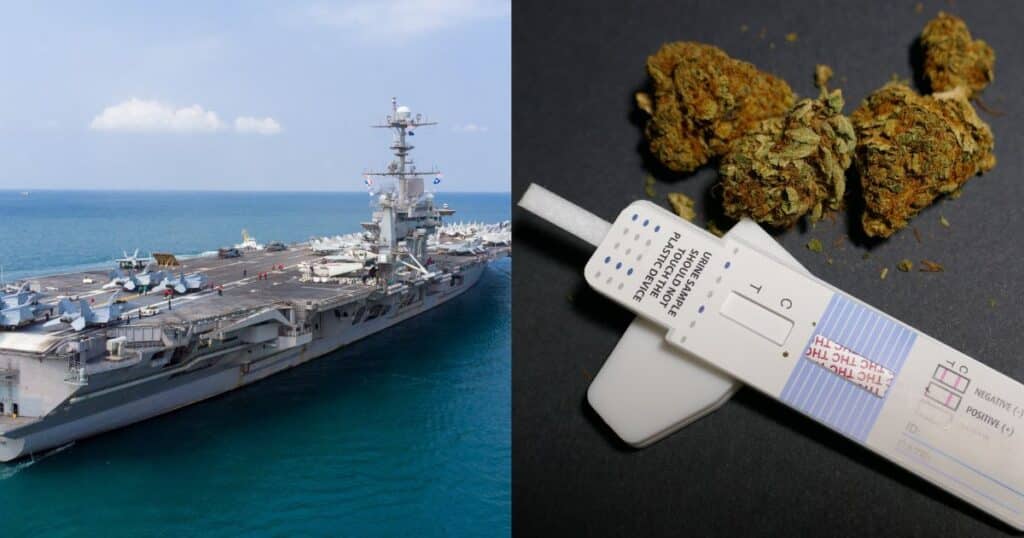In what seems like a cultural and policy pivot, the U.S. military is beginning to acknowledge a changing landscape on cannabis use, aligning with rapidly evolving societal norms. With fresh winds blowing through the traditionally rigid halls of military recruitment, the United States Navy has notably softened its stance on recruits entering boot camp with traces of marijuana in their systems.
The U.S. military’s response to cannabis reflects a larger public acceptance and the realization that past cannabis users can be valuable assets to the armed forces. The move balances maintaining strict discipline while also ensuring that a rigid no-tolerance policy doesn’t inadvertently sweep away potentially exceptional recruits.

Navy’s New Relaxed Cannabis Policy For Recruits
The Naval policy adjustment is a significant departure from the categorical disqualification that once upon a time would have barred recruits on their very first encounter with the drug. The service has expanded the authority to grant waivers for any recruits who initially test positive for THC, the main psychoactive compound in marijuana, per Military.com.
Rear Adm. James Waters, the director of the Navy’s military personnel plans and policy division, made it clear that while the military will remain unwavering in its prohibition of “harder” drugs, the Navy aims to develop a path for individuals who test positive for THC.
“If they fail that test and own up — ‘Yes, I smoke marijuana ‘– we do an evaluation of the young person to make sure there’s not something else going on,” Waters said. “But we trust that through the process of boot camp that we have an opportunity to bring them along with our culture.”
Waters explained that the move was driven in part to be “reflective of where legislation is in society.” “We recognize that many states have legalized marijuana,” he said.
Notably, this new initiative is part of a broad strategy to reduce the alarming boot camp dropout rate. As high as 10%, this attrition has been an ongoing concern that the Navy is committed to curbing. The adjusted policy is a clear signal that the Navy is willing to give recruits who ‘fess up about their marijuana use at boot camp a second chance.
his shift signifies an acknowledgment that past cannabis use does not, in and of itself, define an individual’s commitment or potential within the military.
With a goal to recruit 40,000 sailors by 2024, the Navy’s recruitment infrastructure cannot afford the loss of thousands of sailors due to initial drug screenings.
By instigating this change, the Navy is adapting to the modern era, recognizing that societal shifts demand a more flexible approach to drug use, particularly with popular substances like marijuana that have seen widespread decriminalization and legalization.
Air Force’s THC Waiver Program
The U.S. Air Force, not to be outdone, introduced a Marijuana Waiver Program in 2022 that has already exceeded initial expectations in terms of popularity and acceptance. Understanding that an outright rejection for past cannabis use may result in the loss of valuable candidates, the Air Force echoed the Navy’s sentiments. Through this innovative program, applicants who initially test positive for THC are allowed to re-test after 90 days.
The Air Force introduced a pilot program to retest and potentially enlist applicants who tested positive for THC, the active component in marijuana. Initially, the Air Force anticipated only 50 cases annually, but within the first year of the program, they granted 165 waivers after candidates retested negative for THC, exceeding their expectations by threefold.
While expressing the service’s steadfast position against drug use, Gen. Christopher Amrhein, the Air Force Recruiting Service commander, emphasized the necessity to evolve recruitment strategies.
“Let’s make no mistake, drug usage has absolutely no place in our Air and Space Forces,” Amrhein told reporters. “But allowing a second test in the recruiting process is the right thing to do. For FY23, this policy change allowed us to bring in approximately 165 additional high-quality airmen.”
The Air Force’s recognition of the changing legal landscape and public attitudes toward marijuana is a pragmatic step that addresses the reality at hand. If the Air Force is to continue to secure top-tier, quality recruits, it must remain in lockstep with societal and legal changes.
Embracing Change in Traditional Arenas
The Navy and Air Force’s flexible responses to marijuana use among potential recruits are telling of a broader adjustment within the U.S. military’s outlook on cannabis. By providing critical reforms in their recruitment processes, they are exhibiting a readiness to adapt and a commitment to maintaining competitiveness in an evolving job market.
The path ahead for the U.S. military involves not only beefing up its recruitment strategies but also highlighting its adaptability to future generations of service members. This means recognizing that the people it seeks to recruit reflect a society with shifting values and norms, particularly on substances like marijuana.
It’s an incremental shift, but one that is essential if the military is to reflect the diverse fabric of American society and continue to attract the best and brightest. The message is clear: the traditional paradigm is giving way to a pragmatic, inclusive approach that promises a more robust, prepared, and effective U.S. military.

In light of these developments, it’s crucial to acknowledge that the reformed policies regarding marijuana use are currently limited in scope, applicable exclusively to recruits entering military service. Current service members, as well as veterans under the care of the Department of Veterans Affairs, continue to face strict prohibitions against cannabis use.
Despite this reality, the shift in the recruitment policy could be interpreted as a harbinger of further policy modernizations. As cannabis gains acceptance and becomes more mainstream, there is cautious optimism that the military might extend its evolving perspectives to encompass all service members and veterans.
While these changes are foundational, they are indicative of a military institution taking strides towards inclusivity and adaptability in an era when societal norms are in flux. The incremental policy shifts within recruitment may very well signal the beginning of a broader transformation aligning military standards with the evolving legal and cultural landscape.
Keep updated on all the latest news and updates in the Cannabis industry here at Beard Bros Pharms by signing up for our Friday Sesh Newsletter here. Always Dank and Never Spam!
















